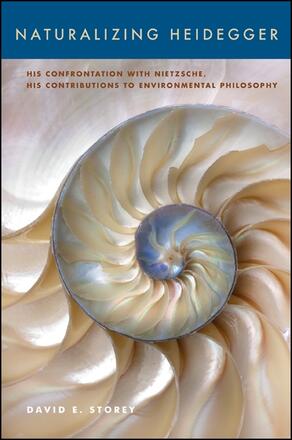
Naturalizing Heidegger
His Confrontation with Nietzsche, His Contributions to Environmental Philosophy
Alternative formats available from:
Explores the evolution of Heidegger’s thinking about nature and its relevance for environmental ethics.
Description
In Naturalizing Heidegger, David E. Storey proposes a new interpretation of Heidegger's importance for environmental philosophy, finding in the development of his thought from the early 1920s to his later work in the 1940s the groundwork for a naturalistic ontology of life. Primarily drawing on Heidegger's engagement with Nietzsche, but also on his readings of Aristotle and the biologist Jakob von Uexküll, Storey focuses on his critique of the nihilism at the heart of modernity, and his conception of the intentionality of organisms and their relation to their environments. From these ideas, a vision of nature emerges that recognizes the intrinsic value of all living things and their kinship with one another, and which anticipates later approaches in the philosophy of nature, such as Hans Jonas's phenomenology of life and Evan Thompson's contemporary attempt to naturalize phenomenology.
David E. Storey is Assistant Professor of the Practice of Philosophy at Boston College.
Reviews
"…[a] welcome new study of Heidegger and environmental philosophy. " — Review of Politics
"…Naturalizing Heidegger is a salutary warning to those who would valorize the later Heidegger and regard the posture of openness as sufficient for establishing an environmental ethic. The highly readable book shows us that our urgent task is to recover a sense of the cosmos, an experience of natural beings charged with intrinsic intelligibility, goodness, and indeed beauty. " — Notre Dame Philosophical Reviews